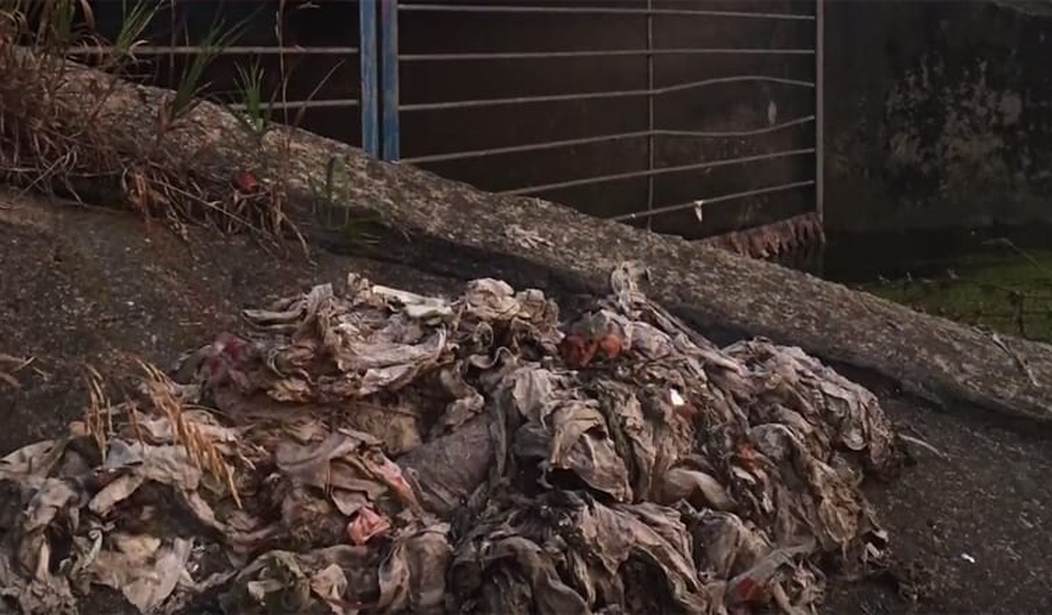Flushable wipes have become very popular, not only in the United States, but throughout the world, and that has been causing huge problems for the world’s sewage systems.
A city in Minnesota decided to take on the flushable wet-wipe industry after the wipes failed to disintegrate and repeatedly clogged its sewer system. In 2015, the city of Wyoming, Minnesota filed a class-action suit against Procter & Gamble, Kimberly-Clark, Nice-Pak, and three other wet-wipe manufacturers for fraudulently promoting their products as flushable.
Via The Atlantic:
Dave Torma, a public-works employee in Wyoming, says that the problem picked up in the early 2000s and has gotten worse over the years. After wet wipes are flushed, they exit a house through a lateral pipe that connects to a public sewer system, where sewage pumps ensure that the wastewater flows in the correct direction. But unlike toilet paper, wet wipes fail to disintegrate. They clog the pumps, causing them to break down and redirect stagnant wastewater back toward houses. Sewer systems must be shut down so that the wipes can be manually removed. When the four-foot pumps are lifted for maintenance, “it looks like you’re pulling up Cousin It,” Torma says.
In 2008, the industry standard for use of the word “flushable” for wet wipes and other nonwoven products was created by the North American trade organization the Association of Nonwoven Fabric Industries, also known as INDA. As of 2013, to be labeled “flushable,” a wet wipe must pass seven tests that evaluate its ability to disintegrate, biodegrade, and clear household and municipal sewer lines. But there is no penalty or fine if a wet-wipe manufacturer doesn’t comply. The industry is self-regulated, without government oversight.
According to the City of Wyoming, INDA’s seven “flushability” tests fail to simulate real-life conditions in a sewer system. One test, the “slosh box” disintegration test, for example, places a wipe in a tank filled with two liters of water that rocks back and forth for 3 hours. The fibers that remain must then be able to pass through a 12.5-millimeter sieve. But a wet wipe often reaches a sewage pump in a couple of minutes, wastewater officials argue. And many sewer systems are not nearly as hard on the wipe as the agitation test. In 2013, Consumer Reports conducted an independent agitation test that none of the leading four wet wipes (Charmin, Scott, Cottonelle, and Equate) could pass. The wipes also failed to break apart after being beaten for 10 minutes in a kitchen stand mixer on the lowest speed.
Dave Rousse, the president of INDA, claims that the flushability tests are satisfactory and that the industry sufficiently regulates itself. He says that INDA calls companies whose wipes don’t pass the seven tests and informs them that their product can no longer be labeled flushable. While he sympathizes with Wyoming’s sewage maintenance problem, he considers their lawsuit “misguided.” Their problem, he contends, is caused by consumers flushing baby wipes—which, unlike the new wave of adult wet wipes, are still meant to be thrown in the garbage—and other non-flushable products like tampons, dental floss, and condoms.
In July, Procter & Gamble, Kimberly-Clark, Nice-Pak, and the three other wet-wipe manufactures named in the suit requested that the City of Wyoming save and archive all of its clogged sewage for 180 days to be used as evidence. This would amount to collecting and storing hundreds of tons of raw sewage. Last week, the judge ruled that Wyoming must collect, photograph, and videotape a third of all its sewage clogs over the 180-day span, but that it could dispose of the sewage after 7 days.
Wyoming, Minnesota is by no means the only city dealing with this problem. Sewerage officials across the nation are are frustrated with INDA’s unreliable flushable standard.
Wastewater associations like the Water Environment Federation tried working with INDA in 2012 to establish “a new, more rigorous standard.” INDA finally presented a working draft to them two weeks before publication at the World of Wipes conference in 2013, and it was “two to three times more lenient than it had been in the previous guidelines.”
“It’s become clear that the manufacturers are not the people that should be telling us what is acceptable and not acceptable in our sewer systems,” says Rob Villee, the executive director of the Plainfield Area Regional Sewerage Authority, in New Jersey.
Villee said that problematic wipes are costing billions of dollars a year in worldwide maintenance. “This is an international problem,” he says. “This isn’t the United States, this isn’t Canada. It’s England. It’s Spain. It’s Australia. It’s Israel, France.”
A “rising star” in the world of flushable wet-wipes, is a product called “Dude Wipes” which caters to young men.
Dude Wipes has made a name for itself by using clever and humorous marketing. The company posts a never-ending stream of potty-themed jokes on social media, such as the faux-launch of a limited-edition Pumpkin Spice scent. Riley, now 31, refers to himself as the “Chief Executive Dude.” Collectively, the owners call themselves “the AmbASSadors.”
The company in August failed to pass a field test conducted by the city of Vancouver, Washington.
Fourteen different brands of flushable wet wipes were labeled, soaked for a half-hour, then flushed down an 8-inch sewer line. The wastewater engineering team retrieved the Dude Wipes in the city sewer system 3330 feet away from the drop point, along with seven other brands, fully intact.
Villee, the Plainfield sewerage authority director, has personally tested Dude Wipes, as well. “They’re not the worst product,” he says. “I’d probably say they’re kind of in the middle of the pack somewhere.”
But Dude Wipes is trying hard to comply with regulations. Last month, they introduced a new version of their flushable wipe, which they say is now is 100 percent biodegradable and free of microplastics.
https://youtu.be/ZqymfgkgBA8









Join the conversation as a VIP Member